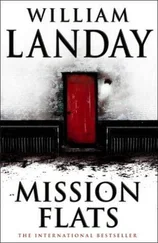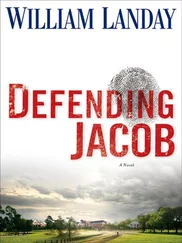William Landay - The Strangler
Здесь есть возможность читать онлайн «William Landay - The Strangler» весь текст электронной книги совершенно бесплатно (целиком полную версию без сокращений). В некоторых случаях можно слушать аудио, скачать через торрент в формате fb2 и присутствует краткое содержание. Жанр: Триллер, на английском языке. Описание произведения, (предисловие) а так же отзывы посетителей доступны на портале библиотеки ЛибКат.
- Название:The Strangler
- Автор:
- Жанр:
- Год:неизвестен
- ISBN:нет данных
- Рейтинг книги:4 / 5. Голосов: 1
-
Избранное:Добавить в избранное
- Отзывы:
-
Ваша оценка:
- 80
- 1
- 2
- 3
- 4
- 5
The Strangler: краткое содержание, описание и аннотация
Предлагаем к чтению аннотацию, описание, краткое содержание или предисловие (зависит от того, что написал сам автор книги «The Strangler»). Если вы не нашли необходимую информацию о книге — напишите в комментариях, мы постараемся отыскать её.
The Strangler — читать онлайн бесплатно полную книгу (весь текст) целиком
Ниже представлен текст книги, разбитый по страницам. Система сохранения места последней прочитанной страницы, позволяет с удобством читать онлайн бесплатно книгу «The Strangler», без необходимости каждый раз заново искать на чём Вы остановились. Поставьте закладку, и сможете в любой момент перейти на страницу, на которой закончили чтение.
Интервал:
Закладка:
The taxi bounced down Beacon Street. Michael lay with his eyes open. No pain yet. Soon. Soon.
3
Joe Daley
Joe Daley filled the door of the Chantilly Lounge. He paused to let his eyes adjust to the gloom inside. Joe had an enormous block of a head, like a slightly oversized statue, and all that squinting and blinking caused his mouth to turn up in a bullyboy smirk, which he did not intend but did not mind, either.
The bar was nearly empty. It was three o’clock on a Wednesday afternoon. In a booth a dingy man sat with a few newspapers in front of him. Joe greeted this man as he passed the booth, “Hey, Fish.”
Fish ignored him.
The bartender ignored Joe, too. He busied himself with stocking a beer cooler from a case of Narragansett.
“Hey, I’ll have one of those,” Joe said.
The bartender opened a bottle from the case, not the cooler, and put it in front of Joe. He slid an envelope onto the bar beside it.
The envelope disappeared into Joe’s black leather jacket. “Thanks, neighbor,” he said with a tip of his bottle, echoing a line from the Narragansett ads.
The bartender did not acknowledge the little joke, but went right back to filling the beer cooler.
Joe gave up on him. He tossed a dime on the bar as a tip, then moved over to the booth. “What’s going on, Fish?”
No one knew why this man was called Fish. His real name was not Fish or anything like it, nor had he ever been involved with fishes or fishing, at least not that anyone knew of. But Fish he was, a small-time bookie who, after paying out the rent he owed to the North End mobsters and to the Chantilly and to the cops, barely had anything to show for his bookmaking efforts. It had been easier before Capobianco took over, before the dagos decided to consolidate all the bookmaking in the city. Then, you paid the cops and that was that. Now you paid everybody. You couldn’t live off the crumbs they left you. Not like the old days.
Joe slid onto the bench opposite Fish. “Let me see the Army,” he said. This was Armstrong’s, a daily racing form that covered the East Coast tracks. “What looks good today, Fish, anything?”
“I don’t get involved, Officer.”
“Hey, what’s with the ‘officer’? I ain’t working, not till five.”
“Before five, after five, I don’t get involved. Just make your own picks. I don’t give a shit.”
Joe opened the paper and studied the handicapping information closely. He muttered as he read, “Feeling good today, Fish, fee-lin’ good.”
Fish shared a glance with the bartender.
“How about this one,” Joe said. “Sixth race at Suffolk, Lord Jim. I like that name. Can I get one down for three oh five? Time is it?”
Fish took the Army with a little frown and found the listing. “Lord Jim,” he mumbled, “ten to one. Ten to one.”
“No guts, no glory.”
“What do you know about him?”
“I know I like him. What, you gonna talk me out of it now?”
“How much?”
“A fin. Make it interesting.”
“To win, you mean?”
“Yeah, to win. Of course to win. What do I look like?”
“Let me see the cash.”
Joe dug in his pocket but came up with just two crumpled singles. He felt the envelope, hesitated. The bartender was watching. Ah, what the fuck, right? It was Joe’s money, some of it anyway. He peeked inside the envelope. Nothing smaller than a ten.
“That ain’t all for you,” the bartender said.
“I’ll put it back.”
“It’s not yours in the first place.”
“I said I’ll put it back.”
Fish shook his head. He produced a battered black notebook from his coat and he noted the bet, encoding Joe’s name in a cipher of his own invention. He folded the Armstrong’s and put it aside, went back to reading the Observer.
The bartender returned to his work, avoiding Joe’s eyes. His movements were sulky, miffed.
“I told you, I’m good for it.”
“Yeah, alright, Joe, you’re good for it. Whatever you say.”
“Good.”
“I just don’t want to hear the envelope was light. Some sergeant comes down here-”
“I’m good for it, I said.”
In the sixth race at Suffolk Downs, Lord Jim finished sixth in a field of six.
4
Joanne Feeney’s apartment on Grove Street had a kitchen window overlooking the West End, or what was left of it. The old neighborhood had been leveled. Rubble, acres and acres of nothing. Only a few buildings had been spared, a couple of churches, Mass. General Hospital. Outside the window now, in the distance, a crane idly swung a wrecking ball into the remains of a tenement. With each tap of the ball, the building shed a few crumbs.
Mrs. Feeney hadn’t had much to do-she was sixty-three-so she had formed a habit of watching the demolition day by day. From her window she studied the wasteland, overlaying it with her memories of the West End, the narrow streets where she’d grown up. When she was a girl, there had been a bicycle shop on Chambers Street where you could rent a bike for a nickel an hour, and Mrs. Feeney had ridden around and around those vanished streets: Chambers Street, Allen, Blossom.
Now the window was open. Cold air blew in.
Classical music played on the hi-fi set. Her son had bought the hi-fi for her; she could barely work the thing. But now it was playing Sibelius, the Fifth Symphony. The record ticked and crackled, but oh, the music! It swayed in a three-note theme, over and over, over and over-the long, gathering crescendo.
A long smear of blood.
A red handprint.
Mrs. Feeney lay on the floor. Her robe ripped open, legs wrenched apart, ankles pinned in the slats of two dining-room chairs to hold them spread, a pillow tucked under her rear end to prop it so that her pudendum was aimed at the front door. A pillowcase and stockings were wrapped around her neck, tied off with a big bow. Bluish bruises and the pink lividity of pooling blood mottled her skin around the garrote. Her mouth was still moist. In her eyes were tiny red spiders, capillaries that had burst.
The Sibelius symphony reached its climax. Five identical chords-irregularly spaced, like a dying heartbeat-each chord separated by a long, breathless pause. In an unstable B flat, the music pulsed twice-three-four-five times-then fell, exhausted, into its natural key of E flat-and it was over. The needle caught in the gutter and scratched there.
A fly, a lethargic November fly, flicked onto the dead woman’s cheek. It tasted the corner of her mouth and scrubbed its forelegs together.
5
Michael, on the front porch. He paced. He hunched inside his winter coat, dragged on a cigarette, picked at the spongy floorboards with his toe. The planks were rotting, flaking apart. What a fucking dump. Whole place was falling apart. It was amazing how quickly a house began to disintegrate, how opportunistic the rot and damp were. One good stomp and he could crack any of these boards.
The screen door creaked and Ricky’s head extended horizontally out of the door frame. “Supper.”
“Be in in a minute.”
Ricky’s head retracted into the house, the screen door slammed, then the door snicked shut behind it.
But a few seconds later Ricky’s head was out again. “She says now.”
“Tell her in a minute.”
“I told her. She says ‘in a minute’ isn’t ‘now.’”
“I know ‘in a minute’ isn’t ‘now.’ That’s why I said ‘in a minute, ’because that’s when I’m coming in: in a minute. Jesus.”
Ricky came out onto the porch, shut the door behind him. “The fuck are you doing out here? It’s freezing.”
Michael held up the cigarette.
“So come inside and smoke it. It’s freezing.”
Читать дальшеИнтервал:
Закладка:
Похожие книги на «The Strangler»
Представляем Вашему вниманию похожие книги на «The Strangler» списком для выбора. Мы отобрали схожую по названию и смыслу литературу в надежде предоставить читателям больше вариантов отыскать новые, интересные, ещё непрочитанные произведения.
Обсуждение, отзывы о книге «The Strangler» и просто собственные мнения читателей. Оставьте ваши комментарии, напишите, что Вы думаете о произведении, его смысле или главных героях. Укажите что конкретно понравилось, а что нет, и почему Вы так считаете.












